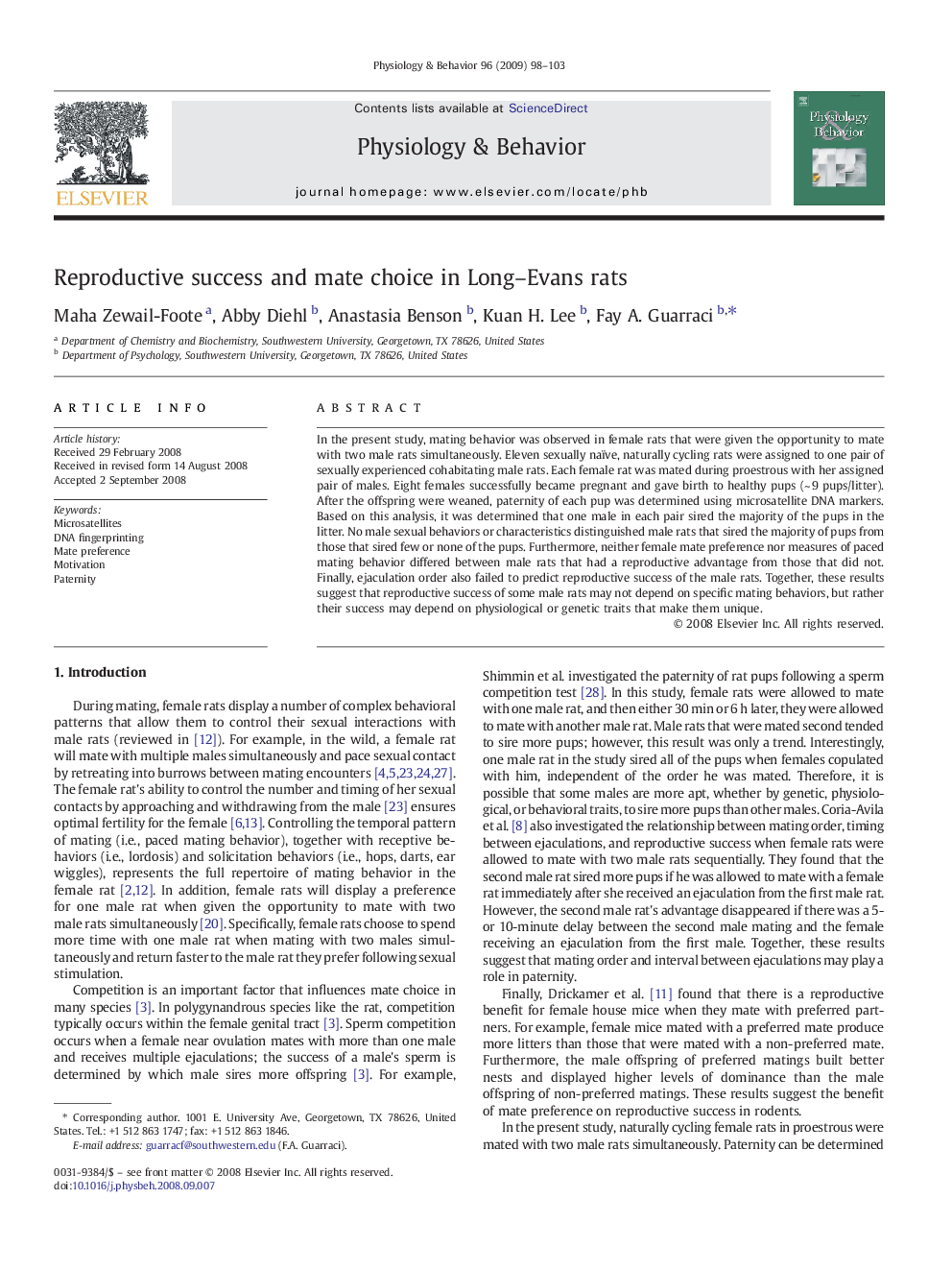| Article ID | Journal | Published Year | Pages | File Type |
|---|---|---|---|---|
| 2845847 | Physiology & Behavior | 2009 | 6 Pages |
In the present study, mating behavior was observed in female rats that were given the opportunity to mate with two male rats simultaneously. Eleven sexually naïve, naturally cycling rats were assigned to one pair of sexually experienced cohabitating male rats. Each female rat was mated during proestrous with her assigned pair of males. Eight females successfully became pregnant and gave birth to healthy pups (~ 9 pups/litter). After the offspring were weaned, paternity of each pup was determined using microsatellite DNA markers. Based on this analysis, it was determined that one male in each pair sired the majority of the pups in the litter. No male sexual behaviors or characteristics distinguished male rats that sired the majority of pups from those that sired few or none of the pups. Furthermore, neither female mate preference nor measures of paced mating behavior differed between male rats that had a reproductive advantage from those that did not. Finally, ejaculation order also failed to predict reproductive success of the male rats. Together, these results suggest that reproductive success of some male rats may not depend on specific mating behaviors, but rather their success may depend on physiological or genetic traits that make them unique.
